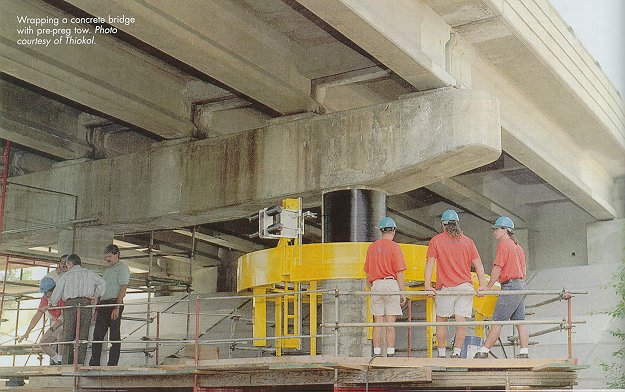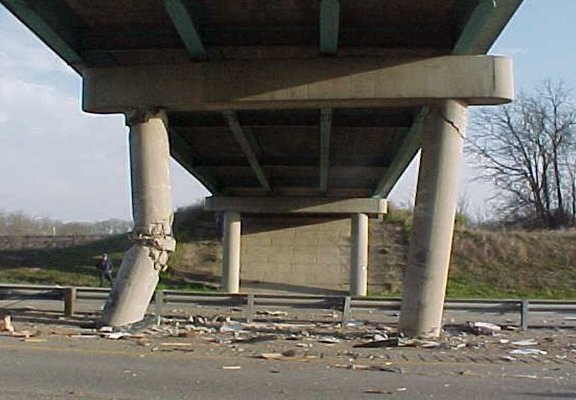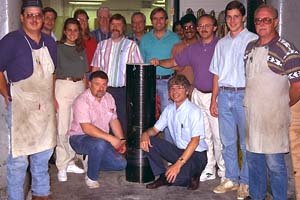
Engineering crews from McDonnell-Douglas and Washington University (St. Louis) join TAM personnel and other subcontractors prior to compression testing of a composite-wrapped concrete cylinder. Right/bottom: The strengthened 'composiwrap' cylinder explodes in a cloud of concrete at a load in excess of 2,000,000 lb (9 MN).
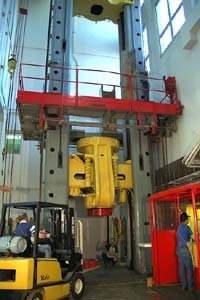 |
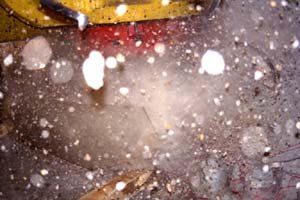 |
Under contract to McDonnell-Douglas, UIUC recently provided the test facility for instrumented testing of concrete cylinders wrapped with carbon-fiber reinforced polymer (CFRP). A 4-ft-high by 12-inch-dia. concrete cylinder, if cast with 5 ksi (35 MPa) strength concrete, would normally fail at a compressive load of about 600,000 lb (2.7 MN), but with the 0.25-inch-thick CFRP shell, the "composiwrap" cylinder satisfactorily sustained a compressive load of 3,000,000 lb (13 MN), which is the capacity of the UIUC Southwark-Emery testing machine, without failure. The load was then removed. Failure was eventually initiated by drilling a small transverse hole through the CFRP casing (thereby cutting through a band of the circumferentially wrapped carbon fibers) and re-loading the specimen.
